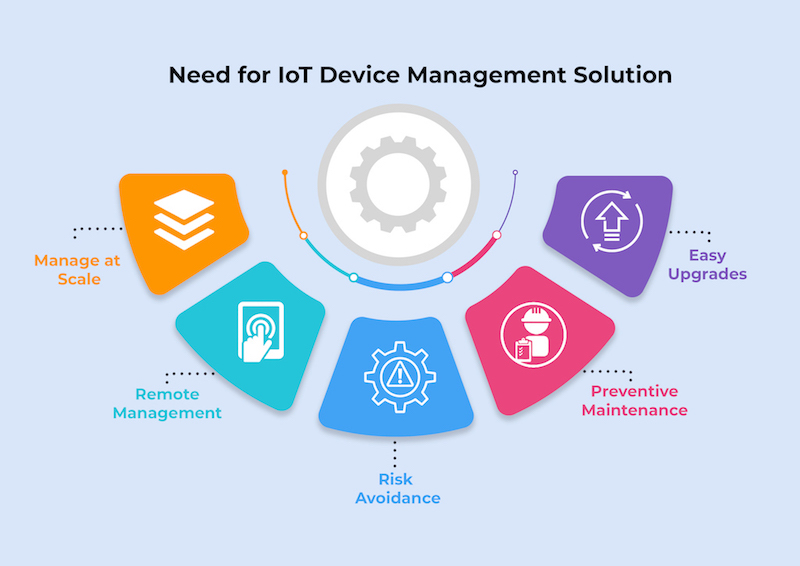In the ever-evolving digital era, IoT management platforms equipped with SSH keys have emerged as indispensable tools for ensuring secure communication among connected devices. As businesses increasingly adopt Internet of Things (IoT) technologies, the demand for robust security measures has reached unprecedented levels. SSH keys are pivotal in securing IoT networks by providing authentication and encryption, ensuring that data transmission remains safe and reliable.
IoT devices are revolutionizing industries and improving daily life, yet they also introduce significant security challenges. Without proper oversight, these devices can become vulnerable to cyberattacks, leading to data breaches and operational disruptions. IoT management platforms address these concerns by offering comprehensive solutions for monitoring, controlling, and securing IoT ecosystems. This article explores the importance of IoT management platform SSH keys, their role in enhancing security, best practices for implementation, and critical considerations for businesses.
Table of Contents
- Introduction to IoT Management Platform
- Understanding SSH Keys
- Importance of IoT Management Platform SSH Keys
- How SSH Keys Secure IoT Devices
- Best Practices for SSH Key Management
- Challenges in IoT Security
- Selecting the Right IoT Management Platform
- Real-World Applications of IoT Management Platform SSH Keys
- Future Trends in IoT Security
- Conclusion
Exploring IoT Management Platforms
IoT management platforms are sophisticated software solutions designed to oversee and monitor IoT devices and networks. These platforms provide a centralized dashboard for controlling devices, analyzing data, and ensuring security. As IoT devices continue to proliferate across various industries, effectively managing them has become a significant challenge for organizations.
Read also:Nikki Catsouras Photos Body A Comprehensive Examination Of The Controversy Facts And Impact
Key Features of IoT Management Platforms
IoT management platforms come equipped with a wide range of features that enhance device management and security. Some of the standout features include:
- Device provisioning and configuration
- Real-time monitoring and analytics
- Over-the-air (OTA) updates
- Advanced security protocols and authentication mechanisms
By leveraging these features, organizations can streamline their IoT operations, reduce risks, and ensure the reliability of their IoT ecosystems.
A Deep Dive into SSH Keys
SSH keys are cryptographic keys used to facilitate secure communication over networks. They provide a more secure alternative to traditional password-based authentication by utilizing public-key cryptography. SSH keys consist of a public key and a private key, which work together to establish secure connections without the need for passwords.
How SSH Keys Operate
When a user attempts to access a server or device, the public key is sent to the server for verification. If the public key matches the private key stored on the server, the connection is authenticated and established. This eliminates the need for passwords, significantly reducing the risk of unauthorized access. SSH keys are widely employed in IoT environments to secure communication between devices and servers, ensuring robust encryption during data transmission.
The Critical Role of SSH Keys in IoT Management Platforms
Within the context of IoT management platforms, SSH keys play a vital role in ensuring secure communication between devices. As the number of IoT devices continues to grow, so does the risk of cyberattacks. SSH keys help mitigate this risk by providing strong authentication and encryption, safeguarding sensitive data and operations.
SSH keys offer several advantages over traditional security measures, such as:
Read also:Song Hye Kyo And Lee Min Ho Drama Name The Ultimate Exploration Of Their Iconic Collaboration
- Enhanced security through public-key cryptography
- Elimination of vulnerabilities associated with password-based authentication
- Scalability to manage large numbers of devices efficiently
By integrating SSH keys into IoT management platforms, organizations can fortify their IoT ecosystems, ensuring operational integrity and data protection.
Securing IoT Devices with SSH Keys
SSH keys secure IoT devices by establishing a secure channel for data transmission. This is achieved through the use of encryption algorithms that protect data from unauthorized access. When an IoT device connects to a server, the SSH key ensures that the connection is both authenticated and encrypted, preventing attackers from intercepting sensitive information.
Encryption Protocols in IoT Management Platforms
IoT management platforms often incorporate advanced encryption protocols, such as AES and RSA, to secure data transmission. These protocols work alongside SSH keys to provide comprehensive security for IoT devices. By combining encryption with strong authentication, IoT management platforms can effectively counteract cyber threats.
Additionally, SSH keys can be used to secure firmware updates and other critical operations, ensuring that only authorized devices and users gain access to sensitive systems.
Effective SSH Key Management Practices
Proper SSH key management is essential for maintaining the security of IoT ecosystems. Below are some best practices for managing SSH keys within IoT management platforms:
- Regularly rotate SSH keys to minimize the risk of key compromise
- Implement strict access controls to limit who can access SSH keys
- Monitor key usage and promptly revoke keys that are no longer needed
- Utilize automated tools for key management to reduce human error
By following these best practices, organizations can ensure that their IoT management platforms remain secure and resilient against potential cyber threats.
Addressing IoT Security Challenges
While IoT management platform SSH keys offer significant benefits, organizations face several challenges when securing IoT ecosystems. These challenges include:
- Device heterogeneity, which complicates the implementation of uniform security measures
- Limited processing power and memory on IoT devices, which can hinder the use of complex encryption algorithms
- Rapidly evolving threat landscapes, necessitating continuous updates to security protocols
To tackle these challenges, organizations must adopt a proactive and adaptive approach to IoT security, leveraging cutting-edge technologies and best practices to stay ahead of potential threats.
Choosing the Ideal IoT Management Platform
Selecting the right IoT management platform is essential for ensuring the security and efficiency of IoT ecosystems. When evaluating platforms, consider the following factors:
- Comprehensive security features, including support for SSH keys and advanced encryption protocols
- Scalability to accommodate a growing number of devices
- Ease of use and seamless integration with existing systems
- Cost-effectiveness and a strong return on investment
By carefully assessing these factors, organizations can choose an IoT management platform that aligns with their specific needs and provides robust security for their IoT devices.
Real-World Applications of IoT Management Platform SSH Keys
IoT management platform SSH keys are being utilized in a variety of real-world applications across diverse industries. In the healthcare sector, SSH keys secure communication between medical devices and servers, safeguarding patient data confidentiality. In manufacturing, SSH keys protect industrial IoT devices from cyberattacks, ensuring production efficiency and safety.
Case Studies
Several organizations have successfully implemented IoT management platform SSH keys to enhance their security. For instance, a leading automotive manufacturer used SSH keys to secure communication between connected vehicles and cloud servers, minimizing the risk of data breaches. Similarly, a smart city initiative employed SSH keys to secure IoT devices used for traffic management and environmental monitoring.
These case studies underscore the effectiveness of IoT management platform SSH keys in addressing real-world security challenges.
Emerging Trends in IoT Security
The future of IoT security will likely be influenced by emerging technologies and trends. Some key trends to watch include:
- Quantum cryptography, which promises to revolutionize encryption by leveraging quantum mechanics principles
- Artificial intelligence and machine learning, which can detect and respond to cyber threats in real-time
- Blockchain technology, which offers a decentralized approach to securing IoT devices and transactions
As these technologies mature, they will play an increasingly important role in enhancing the security of IoT ecosystems.
Final Thoughts
IoT management platform SSH keys are an essential component of modern IoT security strategies. By providing strong authentication and encryption, SSH keys protect IoT devices and networks from cyber threats. To ensure the security of their IoT ecosystems, organizations must adopt best practices for SSH key management and select the right IoT management platform.
We invite readers to share their thoughts and experiences with IoT management platform SSH keys in the comments section below. Additionally, feel free to explore other articles on our site for further insights into IoT security and related topics. Together, we can create a safer and more connected future.

